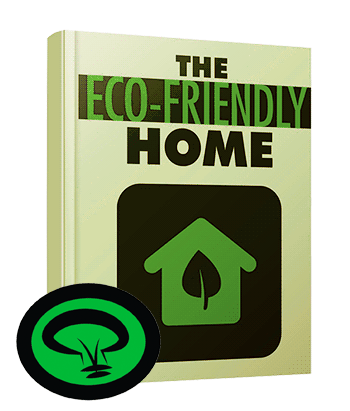
Welcome to Code Base
Being a Tech Environmentalist
Being a tech environmentalist is like being a superhero for the planet! We work in the exciting world of technology, but we also have a super-power: the ability to make sure that the tech we create and promote is kind to the environment. Think of us like tech-savvy eco-warriors, who are always on the lookout for ways to reduce the impact of technology on the planet.
We love using the latest gadgets and software, but we also want to make sure that the earth is protected for future generations to enjoy. So, we work hard to create sustainable technologies, and to advocate for practices that minimize the tech industry’s environmental footprint. So, being a tech environmentalist is not just fun and exciting, it is also an important and rewarding way to make a difference in the world!
How does Coding help?
Imagine a website that allows you to order food online. An environmental coder would make sure that the website is optimized for minimal energy consumption, and that the data centers that power it are running on clean energy. They might also make sure that the website is designed to reduce food waste, by matching surplus food to people who need it.
Another example could be an app that helps people to reduce their carbon footprint. The environmental coder would make sure that it uses the least amount of energy possible, and that the data it collects is used to create more sustainable communities.
It’s like using code as a tool to create a better future for the planet! With environmental coding, we can use technology to help us live in harmony with the earth, rather than taking from it. It’s a way for us to ensure that future generations can enjoy the same clean air, water, and natural beauty that we have today.
What is an Environmental Activist?
An environmentalist activist is like a superhero for the planet! They are people who are passionate about protecting the environment, and they use their powers to make a difference. They might speak out against practices that harm the planet, like pollution or deforestation, or they might work to promote sustainable living and clean energy.
For example, an environmentalist activist might organize a protest against a company that is polluting a river, or they might work to pass laws that protect endangered animals. They might also work to educate people about the importance of recycling, or about the benefits of using clean energy.
One thing that sets environmentalist activists apart from others is their willingness to take action and not just talk about problems. They often speak out, organize, and advocate for the causes they believe in, and they’re not afraid to speak truth to power. They are the one who will tirelessly work to make sure that our planet is protected for future generations to enjoy.
In short, environmentalist activists are people who care deeply about the planet, and they use their talents and energies to make a difference. They’re like the guardians of the earth, working to protect it from harm and preserve it for future generations to enjoy.
Be the change you want to see in the world!
Take action
Learn more about the different coding languages and participate with global diverse environmental organizations that are helping with global challenges.
Intro to Tech Environmentalism
CODING LANGUAGES
- PYTHON CODE
Python is perhaps the most user-friendly programming language of any on this list. It’s often said that Python’s syntax is clear, intuitive, and almost English-like, which, like Java, makes it a popular choice for beginners.
Ready for a lesson?Debugging is part of the process. Code gets updated sometimes, sometimes it’s broken. Part of learning code is to find errors, fix them and test them.Use this Python code to compare to the book. v1.2 System Update.
Earn your coding badge! Debug - JAVASCRIPT
Although JavaScript is primarily a front-end language run on the browser, it can also be used on the server-side through Node.js to build scalable network applications.
Node.js is compatible with Linux, SunOS, Mac OS X and Windows. - SWIFT
If you’re interested in Apple products and mobile app development, Swift is a good place to start. First announced by Apple in 2014, Swift is a relatively new programming language used to develop iOS and macOS applications. - SCALA
As a functional programming language, Scala allows engineers to elevate the quality of their code to resemble pure math. Scala allows for concurrent programming, allowing complex procedures to be executed in parallel.
Furthermore, it is a strongly typed language. Engineers can create and customize their own data types, allowing them to have the peace of mind knowing entire swaths of bugs are impossible at runtime. - GO
One of the core languages favored by Google, Go is the little language that could. As a low-level language, Go is ideal for engineers who want to enter the field of systems programming. It encompasses much of the same functionality of C and C++ without the difficult syntax and steep learning curve.
It’s the perfect language for building web servers, data pipelines, and even machine-learning packages. - ELM
One of the youngest languages on our list, what began as a Harvard student’s thesis has now grown to become a point of passion for front-end developers around the world. - RUBY
In addition to the active community and its straightforward syntax, Ruby is also a good language to pick up thanks to its association with great tech businesses.
Twitter, Airbnb, Bloomberg, Shopify, and countless other startups have all built their websites using Ruby on Rails at some point. - C#
Like C++, C# (pronounced C Sharp) is a general-purpose, object-oriented language built on the foundations of C. It was originally designed by Microsoft as part of its .NET framework for building Windows applications. - RUST
Developed by the Mozilla Corporation, Rust, like C and C++, is intended primarily for low-level systems programming.
What Rust adds to the mix, however, is an emphasis on speed and security. Rust emphasizes writing “safe code” by preventing programs from accessing parts of memory that they shouldn’t, which can cause unexpected behavior and system crashes.
CODING JOB TYPES
- Machine Learning: Python, C/C++, Java, R, and JavaScript
- Front-end web development: JavaScript
- Back-end web development: JavaScript, Java, Python, PHP, Ruby
- Mobile development: Swift, Java, C#
- Game development: C++, C#
- Desktop applications: Java, C++, Python
- Systems programming: C
TECHNOLOGIST
ARTIFICIAL INTELLIGENCE (A.I.) COMPANIES
https://ai.google/
https://aws.amazon.com/
https://www.ibm.com/cloud
https://www.nvidia.com/en-us/about-nvidia/ai-computing/
ARTIFICIAL INTELLIGENCE (A.I.) ROBOTIC COMPANIES
https://www.bostondynamics.com/
http://canvas.technology/
https://www.dronesense.com/
https://www.irobot.com/
https://misorobotics.com/
https://www.neurala.com/
https://www.rethinkrobotics.com/
https://sea-machines.com/
https://www.veobot.com/
https://www.perceptiveautomata.com/
https://www.piaggiofastforward.com/
https://www.uipath.com/
https://www.engineeredarts.co.uk/
https://getcruise.com/
ENVIRONMENTALIST
CLIMATE CHANGE ACTION
CLIMATE CHANGE EDUCATION
ACE – Alliance For Climate Education
CAMEL Climate Adaption Mitigation E-Learning
CCEP – Climate Change Education Partnership
Climate Reality Project – Presentations
I See Change – Community Climate & Weather
CLIMATE CHANGE CONSERVATION
Environmental Defense Fund (EDF)
National Wildlife Federation (NWF)
Natural Resources Defense Council (NRDC)

